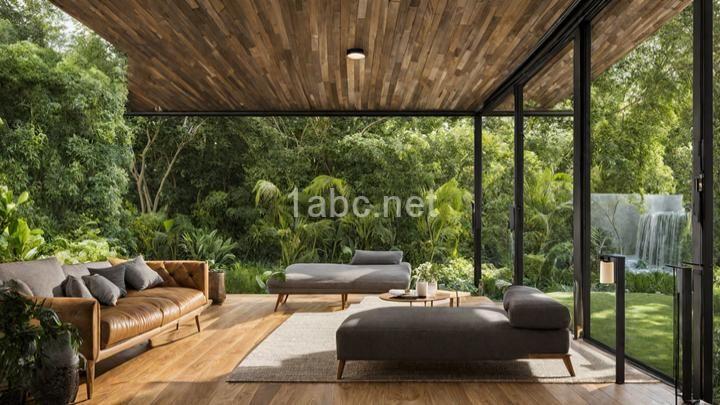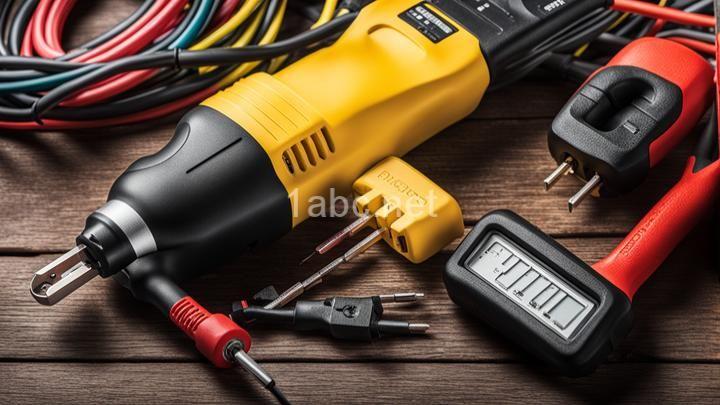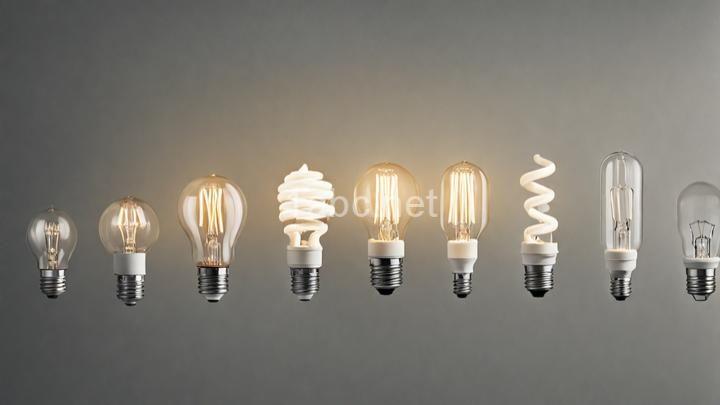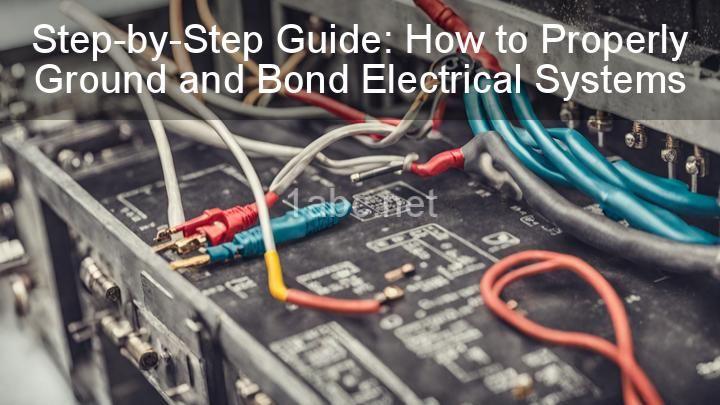Energy-Efficient Solutions for Your Home & Garden: A Green Electrical Guide

Introduction:
Welcome to the ultimate guide on energy-efficient solutions for your home and garden! In today's world, where sustainability and environmental consciousness are becoming increasingly important, finding ways to reduce energy consumption and lower utility bills is crucial. By adopting green electrical practices, not only can you contribute to a greener planet, but you can also save money in the long run. So, let's dive into this exciting journey towards a more eco-friendly and energy-efficient lifestyle!
I. Understanding Energy Efficiency:
To start our green electrical guide, let's define what energy efficiency actually means. Energy efficiency refers to using less energy to achieve the same level of performance, or in simpler terms, getting more out of the energy we consume. By implementing energy-efficient practices in our daily lives, we can significantly reduce our carbon footprint and contribute to a cleaner and healthier environment. Moreover, energy efficiency also translates into cost savings, as it lowers our utility bills and reduces our dependence on fossil fuels.
To understand the importance of energy efficiency, let's take a look at some common energy-wasting practices. Leaving lights on in unoccupied rooms, using outdated appliances, and neglecting proper insulation are just a few examples. By identifying these wasteful habits, we can start taking steps towards a more energy-efficient lifestyle.
II. Lighting Up Your Home Responsibly:
When it comes to energy consumption, lighting plays a significant role in our homes. One of the simplest and most effective ways to reduce energy wastage is by switching to LED bulbs. Unlike traditional incandescent bulbs, LED bulbs are highly energy-efficient and have a longer lifespan. They also emit less heat, making them safer to use.
When choosing LED bulbs, it's important to consider factors like wattage, lumens, and color temperature. Wattage indicates the power consumption, while lumens measure the brightness of the bulb. Color temperature, measured in Kelvin, determines the warmth or coolness of the light emitted. By selecting the right LED bulbs for each room, you can create the perfect lighting ambiance while saving energy.
III. Smart Home Automation:
In this era of technological advancements, smart home devices have revolutionized the way we live. These devices not only offer convenience but also provide an excellent opportunity to optimize energy usage. Programmable thermostats, for example, allow you to control the temperature in your home and save energy by adjusting it based on your schedule. Motion sensors can automatically turn off lights when no one is in the room, eliminating unnecessary energy consumption. Smart plugs enable you to remotely control your appliances, ensuring they are not left on when not in use.
Incorporating these smart gadgets into your everyday life can make a significant difference in your energy consumption. Not only will you have a more comfortable and convenient living space, but you'll also contribute to a greener planet.
IV. Powering Your Garden Sustainably:
Moving on to our gardens, there are numerous eco-friendly alternatives to traditional energy-consuming practices. Outdoor lighting, for instance, can be powered by solar energy or low-voltage LED fixtures. Solar-powered lights harness the sun's energy during the day and automatically illuminate your garden at night. This not only saves energy but also creates a magical ambiance in your outdoor space. Low-voltage LED fixtures, on the other hand, provide bright and energy-efficient lighting options for pathways, driveways, and gardens.
Watering our gardens is another area where we can make a significant impact. Drip irrigation systems, which deliver water directly to the roots of plants, minimize water wastage and promote healthier growth. Rainwater harvesting is another fantastic technique that allows you to collect and store rainwater for later use in watering your garden. By implementing these sustainable watering practices, you'll not only conserve water but also save on your water bills.
Additionally, selecting energy-efficient tools for gardening tasks can further reduce energy consumption. Battery-powered or electric gardening tools are excellent alternatives to gas-powered equipment, as they produce fewer emissions and are quieter.
V. Energy-Efficient Appliances:
Household appliances are often the biggest energy consumers in our homes. By choosing ENERGY STAR certified appliances, you can significantly reduce your electricity consumption. These appliances are designed to be more energy-efficient, resulting in lower utility bills and a greener environment.
Consider replacing outdated appliances like refrigerators, washing machines, and dishwashers with their energy-efficient counterparts. Although the initial investment may seem high, the long-term savings and benefits are worth it. Energy-efficient appliances not only consume less energy but also perform better, saving you both money and time.
VI. Maximizing Energy Savings at Home:
Apart from specific areas like lighting, automation, and appliances, there are several general practices you can adopt to maximize energy savings in your home. Start by unplugging electronics when not in use or using power strips to easily turn them off. Many appliances, even when turned off, continue to draw power in standby mode, known as the "phantom load."
Regular maintenance of HVAC systems, insulation, and weatherstripping is crucial for optimal energy efficiency. By ensuring that your home is properly insulated and sealed, you can prevent energy loss and reduce the load on your heating and cooling systems.
Developing energy-saving habits in your everyday routines can also make a significant impact. For instance, washing clothes in cold water instead of hot can save a substantial amount of energy. Similarly, air-drying your laundry instead of using a dryer not only conserves energy but also extends the life of your clothes.
Conclusion:
Congratulations on completing this comprehensive guide on energy-efficient solutions for your home and garden! By implementing the green electrical practices discussed, you are on your way to creating a more sustainable and energy-efficient living space. Remember, small changes can make a big difference. Let's join hands and work towards a greener future for ourselves and generations to come. Together, we can create a world where energy efficiency is the norm and our planet thrives.
FREQUENTLY ASKED QUESTIONS
What is the brand [Energy-Efficient Solutions for Your Home & Garden: A Green Electrical Guide]?
The brand "Energy-Efficient Solutions for Your Home & Garden: A Green Electrical Guide" is committed to providing environmentally friendly and sustainable options for your electrical needs. Our brand specializes in offering energy-efficient solutions that can help you reduce your carbon footprint and save on energy costs.Whether you're looking for LED lighting options, solar-powered appliances, or smart home automation systems, our brand has got you covered. We understand the importance of creating a more sustainable future, and we believe that small changes in our everyday lives can make a big difference.
By choosing our energy-efficient solutions, you can not only contribute to a greener environment but also enjoy the benefits of lower electricity bills. Our team of experts is dedicated to helping you find the most suitable options for your home and garden, ensuring that you make informed decisions.
With a wide range of products and services, we strive to make it easy for you to embrace a more sustainable lifestyle. From energy-efficient lighting fixtures to eco-friendly outdoor power tools, we have everything you need to make your home and garden more environmentally friendly.
So, if you're ready to make a positive impact on the environment and save money in the process, choose our brand "Energy-Efficient Solutions for Your Home & Garden: A Green Electrical Guide". Together, let's create a greener and more sustainable future for all.
Why should I choose energy-efficient solutions for my home and garden?
There are several reasons why choosing energy-efficient solutions for your home and garden is a smart decision. First and foremost, energy-efficient solutions can help you reduce your energy consumption and lower your utility bills. By using appliances, lighting, and heating/cooling systems that are designed to be energy-efficient, you can save money in the long run.Additionally, energy-efficient solutions are beneficial for the environment. By reducing your energy consumption, you can help decrease greenhouse gas emissions and contribute to a healthier planet. This is especially important in today's world where climate change is a pressing issue.
Energy-efficient solutions also often come with added benefits such as longer lifespan and improved performance. Many energy-efficient appliances and systems are designed to be more durable, resulting in less frequent maintenance and replacements. Moreover, they often provide better performance, which can enhance your overall comfort and convenience at home.
Furthermore, choosing energy-efficient solutions can also increase the value of your property. As more and more people become environmentally conscious, energy efficiency has become an attractive feature for potential buyers. Investing in energy-efficient upgrades for your home and garden can make it more appealing to future buyers and potentially increase its resale value.
In conclusion, choosing energy-efficient solutions for your home and garden is a win-win situation. It allows you to save money on utility bills, reduce your environmental impact, enjoy improved performance, and potentially increase the value of your property. So why not make the switch to energy-efficient solutions? It's a decision that benefits both you and the planet.
What are some examples of energy-efficient solutions for my home?
There are several energy-efficient solutions that you can consider for your home. Here are a few examples:
-
LED Lighting: Switching to LED light bulbs can significantly reduce your energy consumption. LED bulbs are more efficient and have a longer lifespan compared to traditional incandescent bulbs.
-
Programmable Thermostats: Installing a programmable thermostat allows you to set specific temperatures for different times of the day. This helps optimize your heating and cooling systems, reducing energy waste when you're not at home or during sleeping hours.
-
Energy-Efficient Appliances: When it's time to replace your old appliances, look for energy-efficient options. Energy Star certified appliances consume less energy and can help you save on your utility bills.
-
Insulation: Proper insulation in your home can prevent heat transfer, keeping your home cooler in the summer and warmer in the winter. This reduces the load on your heating and cooling systems, saving energy.
-
Solar Panels: Installing solar panels on your roof can harness the power of the sun to generate electricity for your home. This renewable energy source can greatly reduce your reliance on the grid and lower your energy bills.
-
Smart Power Strips: Many electronic devices consume energy even when they are turned off or in standby mode. Smart power strips can automatically cut off power to these devices when not in use, eliminating this phantom energy usage.
-
Energy-Efficient Windows: Upgrading your windows to ones with double or triple glazing and low-emissivity coatings can improve insulation and reduce heat transfer, making your home more energy-efficient.
Remember, these are just a few examples of energy-efficient solutions for your home. It's always a good idea to assess your specific needs and consult with professionals to determine the best options for your situation.
How can I make my garden more energy-efficient?
To make your garden more energy-efficient, there are several steps you can take. 1. Install solar-powered lights: Switching to solar-powered lights not only helps to reduce your energy consumption but also adds a beautiful ambiance to your garden. These lights use the sun's energy to power up during the day and illuminate your garden at night.
-
Use a rainwater harvesting system: Instead of relying solely on tap water, consider installing a rainwater harvesting system. This system collects rainwater from your roof and stores it in a tank, which you can then use to water your plants. It's a great way to conserve water and reduce your reliance on the mains supply.
-
Opt for native plants: Choosing native plants for your garden has multiple benefits. Native plants are well adapted to the local climate and require less water and maintenance. By planting them, you can reduce the need for excessive watering and minimize the use of fertilizers and pesticides.
-
Utilize natural mulch: Applying natural mulch, such as wood chips or straw, around your garden beds helps to retain moisture in the soil and suppress weeds. This reduces the need for frequent watering and saves water in the long run. Plus, it adds organic matter to the soil, improving its fertility.
-
Create a composting system: Instead of throwing away your kitchen scraps and yard waste, set up a composting system in your garden. Composting not only reduces waste but also produces nutrient-rich compost that can be used as a natural fertilizer for your plants. This eliminates the need for synthetic fertilizers, which can be energy-intensive to produce.
-
Use efficient irrigation methods: Consider using drip irrigation or soaker hoses instead of traditional sprinklers. These methods deliver water directly to the roots of your plants, minimizing water loss through evaporation. They are more targeted and efficient, ensuring that water is used where it's needed most.
By implementing these energy-efficient practices in your garden, you can reduce your environmental impact, save water, and create a sustainable and beautiful outdoor space.



